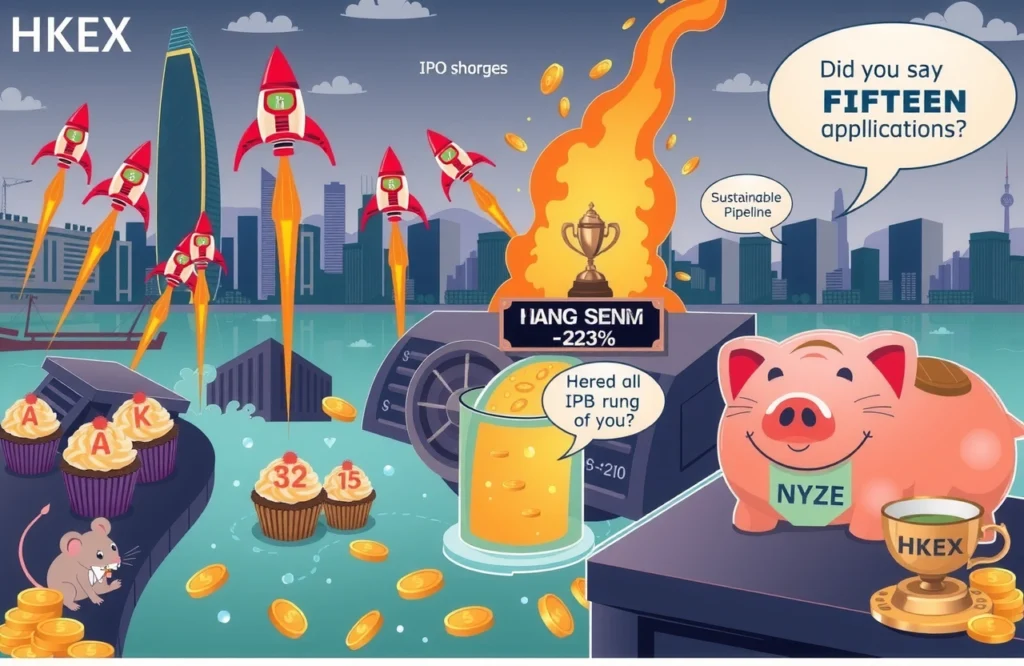The Boardroom Battle Erupts
ST Xinchao (600777) has become the epicenter of a corporate governance earthquake after its board unanimously rejected shareholders’ demand for an emergency meeting. This dramatic 7-0 vote against Hongyu Commerce and five other major investors comes just weeks after coal giant Yitai B Share (900948) completed its 11.58 billion yuan ($1.7B) takeover. The rejected proposal sought to replace the entire board and supervisory committee amid mounting delisting fears, setting the stage for a high-stakes power struggle.
Breaking Down the Board’s Unanimous Rejection
The June 29 board meeting produced a rare show of unity with zero votes in favor and seven against the shareholder proposal. This board’s unanimous rejection wasn’t merely procedural—it represents a fundamental clash over corporate control.
Legal Grounds for Refusal
Company filings cite multiple violations in the shareholders’ approach:
– The proposal lacked proper identification of the convening entity
– Failed to specify concrete agenda items for the requested meeting
– Violated Article 53 of China’s Company Law regarding shareholder proposal protocols
– Contradicted ST Xinchao’s own Articles of Association
This board’s unanimous rejection highlights how procedural technicalities can become strategic weapons in corporate control battles. Legal experts note such technical rejections have increased 27% year-over-year among Chinese listed companies facing activist investors.
Yitai Coal’s Costly Power Play
Behind the six shareholder petitioners stands Inner Mongolia’s coal behemoth. Yitai Coal, China’s largest private coal producer, spent 11.58 billion yuan ($1.7B) acquiring 50.1% of ST Xinchao through a tender offer completed in April. The premium-priced deal at 3.40 yuan per share represented a 20% markup over market price.
The Proposed Leadership Overhaul
The rejected proposal outlined a complete management purge:
– Eight non-independent director nominees including Zhang Xiuwen (张秀文) and Zhang Junyu (张钧昱)
– Four independent director candidates led by Chen Xiaojun (陈小俊)
– Three supervisory committee replacements
Notably, seven of eight board nominees had direct ties to Yitai Coal, confirming the coal giant’s push for operational control. This board’s unanimous rejection effectively blocks Yitai’s immediate governance overhaul.
The Ticking Delisting Time Bomb
ST Xinchao’s trading suspension since May 6 underscores the crisis urgency. The company faces automatic delisting if it fails to disclose two critical reports:
– 2024 Annual Report (already 2 months overdue)
– Q1 2025 Financial Statements
Under Shanghai Stock Exchange rules, the company has until July 6 to publish its 2024 results or face automatic delisting procedures. Shareholders explicitly warned in their proposal that current directors bear “legal liability” for the reporting failure.
Last-Minute Rescue Efforts
In a June 27 disclosure, ST Xinchao claimed “all-out efforts” to finalize the overdue reports. However, the Shanghai Stock Exchange has issued three compliance warnings since April, with regulatory filings showing only 40% of required documentation submitted. This board’s unanimous rejection of governance changes now raises questions about accountability if delisting occurs.
Shareholder Coalition’s Strategic Gambit
The six investor groups—Hongyu Commerce (宏语商务), Guojin Sunshine (国金阳光), Bonacheng Private Equity (伯纳程私募), Chen Kaijun (陈开军), Song Juan (宋娟), and Wang Zhen (王震)—represent 22.3% of non-Yitai shares. Their coordinated action reveals sophisticated tactics:
– Leveraging delisting deadlines as pressure point
– Publicly documenting Yitai Coal’s endorsement
– Pre-selecting management candidates before meeting request
– Citing directors’ legal exposure to regulatory failures
Corporate governance specialists at Peking University note this multi-pronged approach reflects growing shareholder activism sophistication in China’s capital markets.
Regulatory Implications and Market Fallout
This conflict occurs against tightened CSRC oversight following new delisting regulations enacted in March 2024. The China Securities Regulatory Commission has penalized 17 listed companies for governance failures this year, with average fines tripling to 15 million yuan.
Investor Protection Concerns
Minority shareholders face compounded risks:
– Shares frozen since May trading suspension
– No disclosure on delisting contingency plans
– Board rejecting governance changes despite ownership shift
– Potential 100% loss if delisting occurs
The Shanghai Stock Exchange shows 43,000 retail investors hold ST Xinchao shares, with average holdings valued under 50,000 yuan. Their inability to exit positions during the suspension period intensifies the governance crisis.
Corporate Governance at a Crossroads
ST Xinchao’s boardroom battle represents a critical test case for shareholder rights in China’s evolving capital markets. The board’s unanimous rejection of shareholder demands—despite a controlling ownership change—highlights tensions between procedural compliance and substantive governance reform.
As the July 6 reporting deadline approaches, stakeholders should monitor three critical developments:
– Shanghai Stock Exchange’s enforcement posture regarding delisting
– Potential shareholder lawsuits over board obstruction
– CSRC intervention in the governance deadlock
This high-stakes corporate drama underscores that even successful takeovers can unravel without proper governance transitions. Investors must scrutinize board composition and shareholder agreement terms before backing acquisition targets, particularly in China’s volatile special treatment stock segment. The coming weeks will determine whether ST Xinchao becomes a cautionary tale or a template for shareholder empowerment.


















